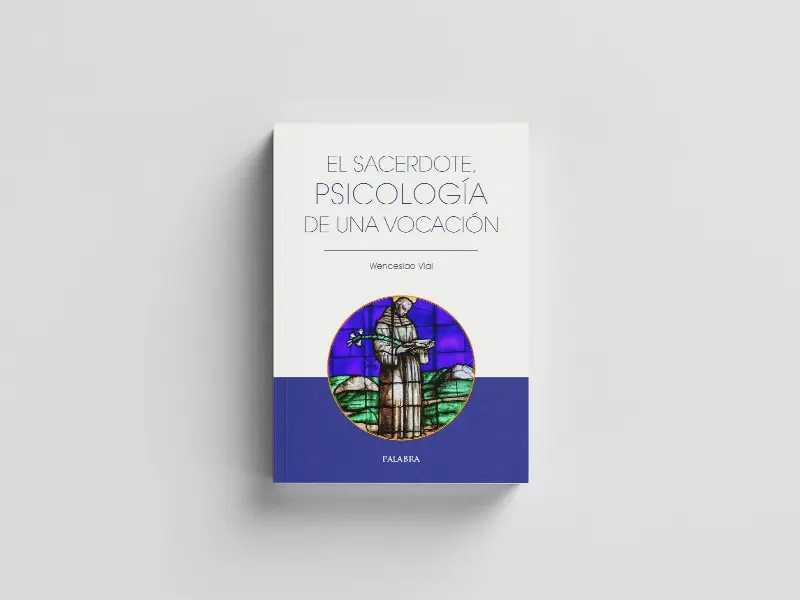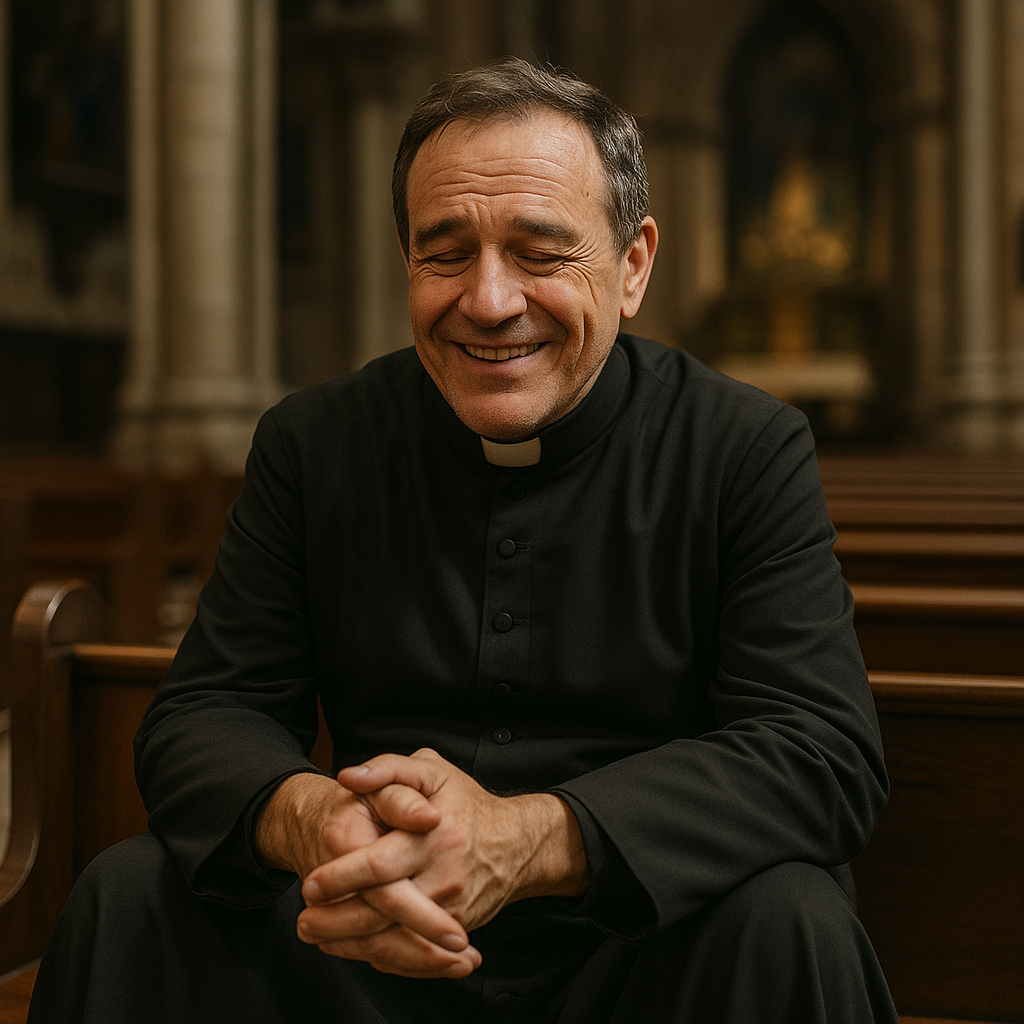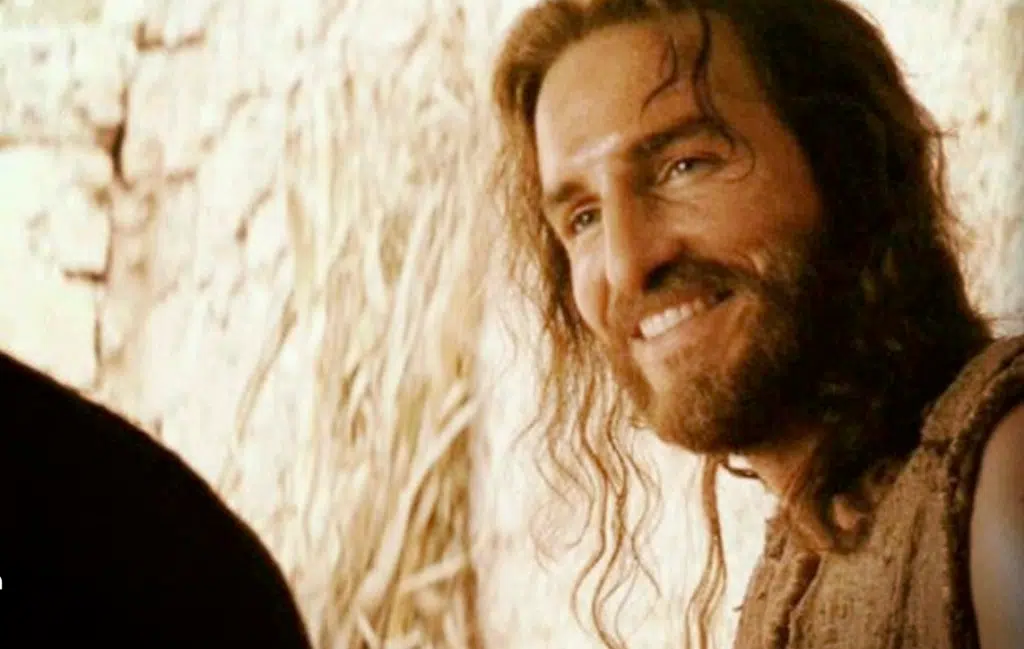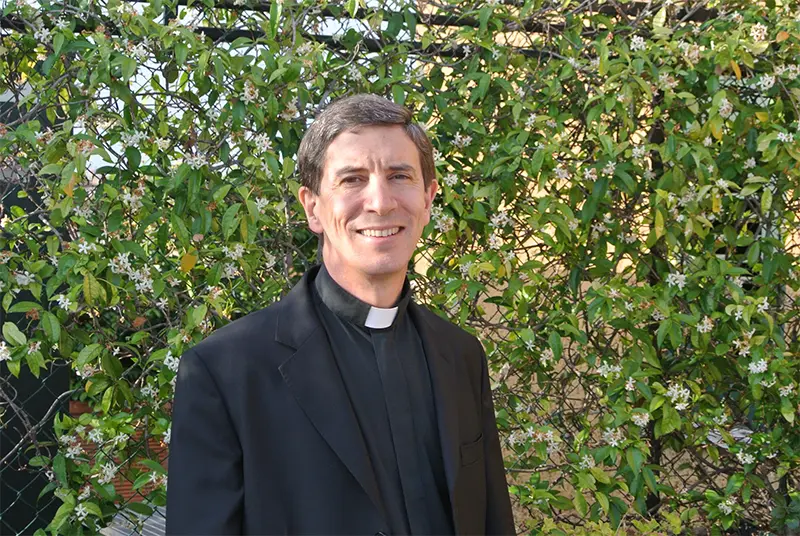
A book that raises many questions about happiness and the vocation of the priest: Is the figure of the Catholic priest still attractive? Can a person who renounces marriage be happy? When to advise against the priesthood or other specific paths of dedication? Christian? These and other questions find useful answers, sprinkled with real life and pastoral experience.

The author of Psychological and spiritual maturity addresses the luminous panorama of the Christian vocation, beginning with the priesthood. The identity and mission of the priest, as of other vocations within the Church, are understood in the light of Jesus Christ, who came to earth to serve and not to be served.
The priest - the book explains - must see the sacred in others, confirming them in their value; and, at the same time, bring the divine, the sacred, to each person. This is the mission that characterizes him and from which comes his dignity and great responsibility before God, before each person and before society as a whole.
It introduces the psychological dynamics, its conflicts and challenges, its sources of peace and harmony. Being a priest implies giving light, comfort and hope.The Church, insofar as it strives to identify itself with Jesus Christ, God made man.
Many of the above ideas apply to other forms of vocation within the Church, especially if they assume the gift of celibacy.
"Life is attained and matures as it is given to give life to others."
Document of Aparecida, 2007, quoted in Francis, Apostolic Exhortation Evangelii gaudium, November 24, 2013, n. 10.

In the first chapter, the process of maturity is presented, underlining the freedom and the moments of crisis along the development. The notes of a mature personality are defined, in order to welcome and make fruitful the free gift of a divine call.
How to discern that call, with the types of vocationThe examination of the person's aptitudes and intention is the subject of the second chapter. It is also mentioned when it is necessary to have recourse to psychologists, following the guidelines of the Ratio for the formation of priests, of the Congregation for the Clergy: The Gift of the Priestly Vocation, 2016.

The third chapter is entitled Harmony of daily life. Here we distinguish between and explain the concepts of good loneliness and harmful loneliness. The psychological importance of prayer and the need for a healthy balance between activity and rest are discussed in depth. Healthy habits and hobbies form a special section, which shows in its development the unity of the three human dimensions: physical, psychic and spiritual.
A dimension of particular strength in the individual is the sexuality. The fourth chapter explains how it can be a source of joy or tormentdepending on whether it is integrated or not, whether it lives humanely or not.
The theme of human love, the understanding of which is the basis for understanding divine love and self-giving, is addressed. It touches on psychological and behavioral obstacles, in particular pornography and homosexual activity, which hinder a serene advancement in the vocation; and ends with some notes on spiritual paternity and the defense of a charism: the celibacy.

The fifth chapter analyzes a frequent phenomenon among many service professions or professions on which others depend: burnout, with reference to pastoral practice. The forms of presentation, the persons at risk, and the how to deal with and prevent it. All with the intention of better understanding this picture, similar to depression, which makes many people suffer in different environments, including priests and people engaged in the apostolates of the Church.
The last chapter presents a series of attitudes for the prevention of psychic symptomatology. It deals with the mindfulness or focused awareness and its relationship with Christian meditation and the presence of God. Self-transcendence as an essential characteristic of the human being is related to the apostolic mission and pastoral challenges.
It ends with a reference to the Youth and strength of the spirit, capable of overcoming many difficulties and guiding us along paths of peace and joy. At the end there is a list of recommended books and useful websites.
The book The priest, psychology of a vocation is also published in Italian (The priest, the psychology of a vocationEdusc 2021) and in Portuguese (The Psychology of a VocationQuadrante 2021).
Buy in Word
Buy in Amazon